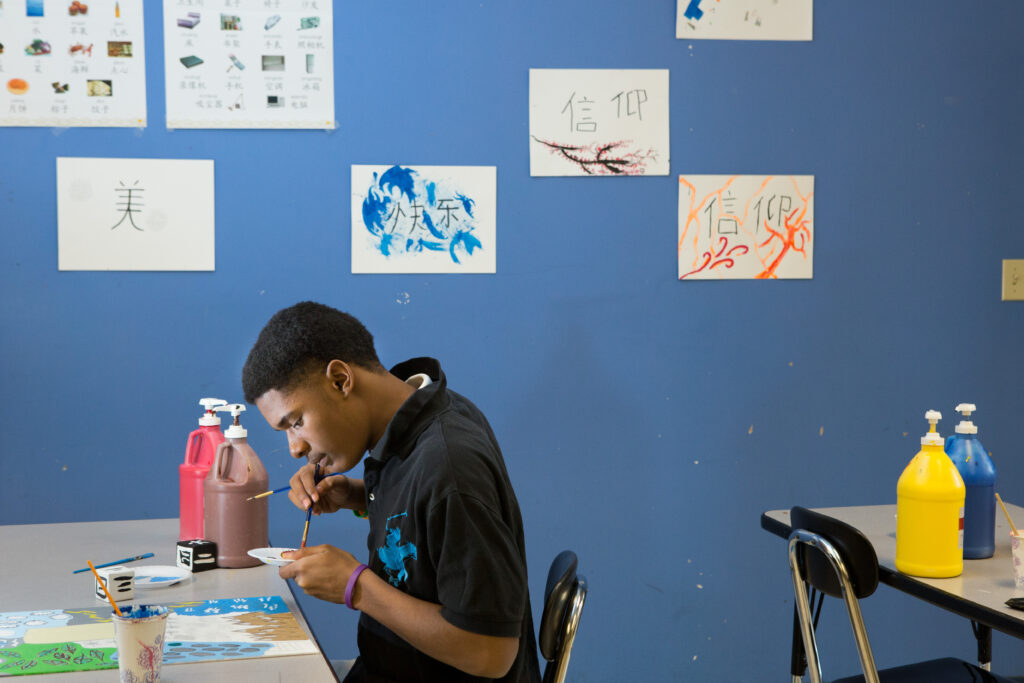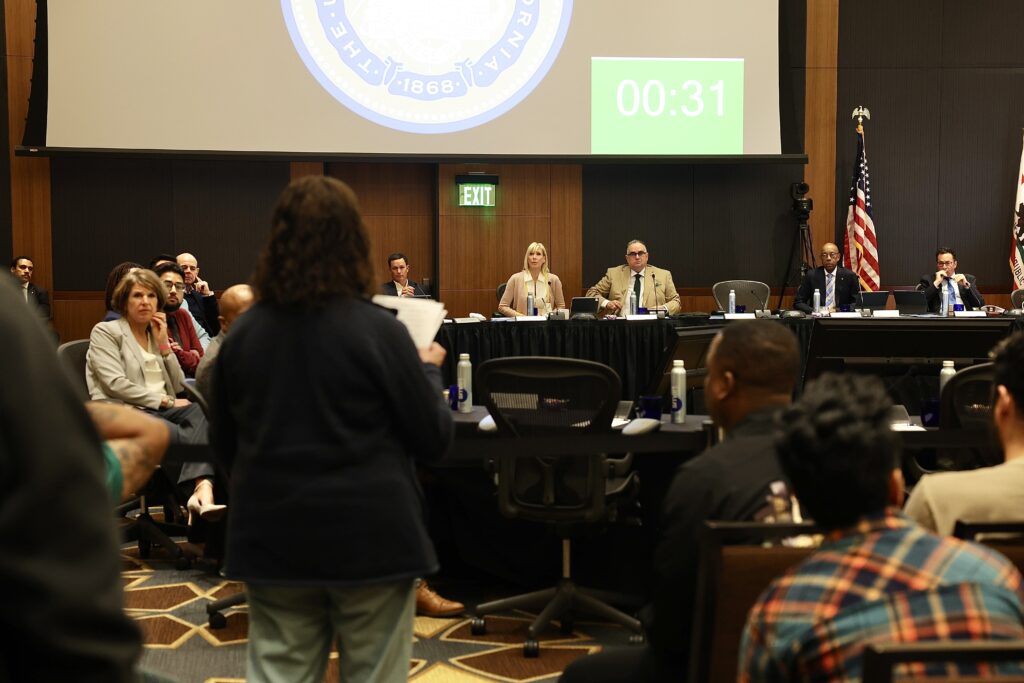
Credit: Allison Shelley for American Education
Faced with an ongoing teacher shortage, many California arts education advocates have been championing the use of career technical education (CTE) to attract new arts teachers to help fulfill the state’s historic arts mandate. The sticking point has been that the credential has only been applied to secondary classrooms, leaving elementary students out.
That may change if Gov. Gavin Newsom’s initial 2024-25 state budget becomes law. This proposal, subject to change in May, when the numbers are revised in response to shifting economic conditions and policy issues, calls for the Commission on Teacher Credentialing to create a new Elementary Arts and Music Education pathway for career technical education teachers. This expansion would allow more working artists to share their expertise with California students, a move many arts advocates praise.
“Newsom is paving the way for a more vibrant and well-rounded educational experience, fostering creativity and skill development at every stage,” said Allison Gamlen, visual and performing arts coordinator for the San Mateo County Office of Education. “Empowering CTE teachers with the ability to bring their expertise to elementary classrooms is a positive step that will enrich the artistic learning experience for young students.”
Expanding this credential into elementary schools might help recruit working artists, from musicians to animators, who are passionate about their craft into the school system, which is struggling to find staff in the wake of the pandemic.
“It’s really exciting,” said Austin Beutner, the former superintendent of Los Angeles Unified School District, who authored Proposition 28. He said the governor’s direction to the Commission on Teacher Credentialing about expanding the career technical education pathways for arts educators to include elementary schools “will help all 6 million children in public schools across California benefit from the additional funding Prop. 28 provides for arts education.”
While many arts advocates are excited, some also caution patience, given the exhaustive nature of the bureaucratic process. The budget may well undergo significant changes during the May revision, for example.
“Teaching artists will now have another pathway into employment at schools to meet the needs of Prop. 28,” said Eric Engdahl, professor emeritus at CSU East Bay and past president of the California Council on Teacher Education. But “knowing how state bureaucracies work and the laws that govern their actions, I don’t think this will produce any new teachers for at least two years, quite possibly more.”
One key concern has been whether artists have sufficient knowledge of best practices for younger children. Some are concerned that teaching third graders requires a different skill set than eighth graders, for instance.
“Elementary has different foundational considerations, including meeting young students’ developmental and reading needs,” said Letty Kraus, director of the California county superintendents’ statewide arts initiative. “The developmental piece is an important one.”
Kraus believes the state should solve the staffing problem by widening the existing arts educator pipeline.
“Rather than push CTE down into elementary, I think it is important to look at our existing credentialing system and consider how to increase statewide access to credentialing pathways, including virtual,” she said, “and also how to remove financial barriers and support credential candidates while they complete their student teaching.”
Some arts education experts warn that teaching a subject is not the same as practicing it.
“I am concerned about having CTE teachers teaching a core subject like arts, math and science —mastering a subject doesn’t mean you can teach it,” said Abe Flores, deputy director of policy and programs at Create CA, an advocacy group. “I know how to read, but it doesn’t mean I can adequately teach a student to read.”
Others say that the new credential should require adequate training in child development as well as pedagogical concerns.
“Since it is now in the CTC’s court, they will have to create a pathway that ensures preparedness,” said Engdahl. “A CTE credential requires classes in addition to industry experience, and the CTC should be looking at those classes closely.”
Engdahl has confidence that aspiring arts educators will apply due diligence to their professional development.
“As for teacher preparedness, I am not really too concerned. When I was a teaching artist, and having worked with teaching artists for many years, I have noticed that their classroom preparedness is generally excellent.”
However, classrooms today are not what they were before the pandemic, and many children are coping with mental health issues as well as learning loss. That raises the stakes for all new teachers, Engdahl notes, not just arts educators.
“If there is an area of concern, it is in the changes in schools after Covid,” said Engdahl. “Students and schools are different now, and it is more challenging helping students to heal and learn.”
This urgency to adapt to shifting school needs is one reason Beutner believes change is called for.
“You have to meet the students where they are,” said Beutner. “You also have to meet the aspiring teachers where they are.”




